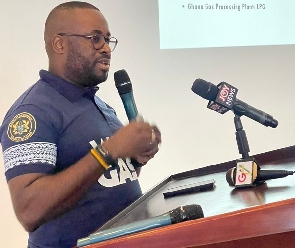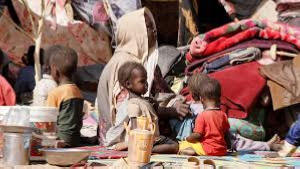The National Petroleum Authority (NPA) says climate action policies of European countries are threatening Ghana’s fuel supply, hence the need for the country to boost local production to curb the threat.
The NPA identified four main threats to Ghana’s fuel security – geopolitics and conflicts, climate change action policies by the West to protect the planet, forex liquidity risks, and inclement weather, threats it said could cause fuel shortages in the country.
Despite being a producer of crude oil, Ghana is only able to refine 20 percent of its daily fuel needs, compelling it to rely on Europe and the Arabian Gulf for the rest of its daily fuel needs.
However, with Europe now leading the push for the world to abandon the use of fossil fuels such as coal, oil, and natural gas as part of efforts to reduce greenhouse emissions, there are fears that it could cut down production of fossil fuels, leading to reduced supply to developing countries including Ghana.
The United Nations has also set a 2030 target through its Sustainable Development Goals for all countries to adopt the use of sustainable energy such as wind, hydro-energy and solar for the world’s energy needs instead of the use of fossil fuels.
This is to reduce greenhouse emissions and protect against the depletion of the earth’s ozone layers which is causing climate change or global warming.
But Ghana believes that the best option for Africa will be transitioning to the use of gas due to the abundance of natural gas on the continent.
It also believes transitioning to sustainable energy will be extremely expensive for Africa, a continent still struggling to end poverty and hunger among its citizens.
Head of Planning at the NPA, Dominic Aboagye told this reporter on Wednesday evening in Tamale during an engagement with the media on the activities of the NPA that the Ministry of Energy was pushing for a domestication of Africa’s transition plan to be able to meet Africa’s current demands.
“As Africa and Ghana in particular, we’re looking at how to Africanize and domesticate our own energy transitions so that we don’t lose focus on some of the major bread and butter issues facing us as a country and a continent at large,” he said.
He said even though Africa was in support of the protection of the planet, there was also the need to concentrate on the well-being of its people.
“As much as we want to protect the planet, we should also think about people’s wellbeing, people are hungry, poverty is there knocking on doors in Africa and then we’re rather investing millions of dollars into renewable forms of energy” he emphasized.
Mr Aboagye said as part of the plan, Ghana is pushing for Ghanaians to use Liquefied Petroleum Gas (LPG) instead of coal, as part of efforts to reduce greenhouse emissions.
“I’m sure with time you’ll start to hear the promotion activities where we’re pushing for people to use LPG [Liquefied Petroleum Gas] so that we can move from wood fuels [coal], all these things also contribute towards curbing and reducing the emissions” he added.
He also said that a new oil refinery, Sentuo Oil Refinery which would refine 45,000 barrels of petroleum products including Petrol, Diesel, Aviation Turbine Kerosene (ATK), and LPG is expected to be completed by the end of the year to help increase local supply and reduce the country’s dependence on imported products, thereby significantly reducing the risk of shortage of supply as a result of the west’s climate action policies.
On the pressure from the West for the world to move from greenhouse gas emissions to greener energy, Mr Aboagye wondered why the world suddenly wants to move away from fossil fuel at a time Africa is not only beginning to industrialize but also making huge discoveries of oil in commercial quantities.
“Most of the industrialized nations were able to industrialize or develop because of some of these fuels, this petro-diesel and now Africa, you’ll realize we’re having a lot of oil discoveries in the developing areas…we now understand the space and now are able to negotiate better agreements with some of these international oil companies.
Then just when we’re getting to that point where we’re able to control destiny, they say no, let’s shift from this type of fuel to Greener energy, now even to move to that greener is very expensive. Already Ghanaians or even Africans are not able to meet their basic needs and yet you’re saying we should go and invest in all these renewable energy” he noted.
Regional News of Thursday, 20 July 2023
Source: Mumuni Yunus













